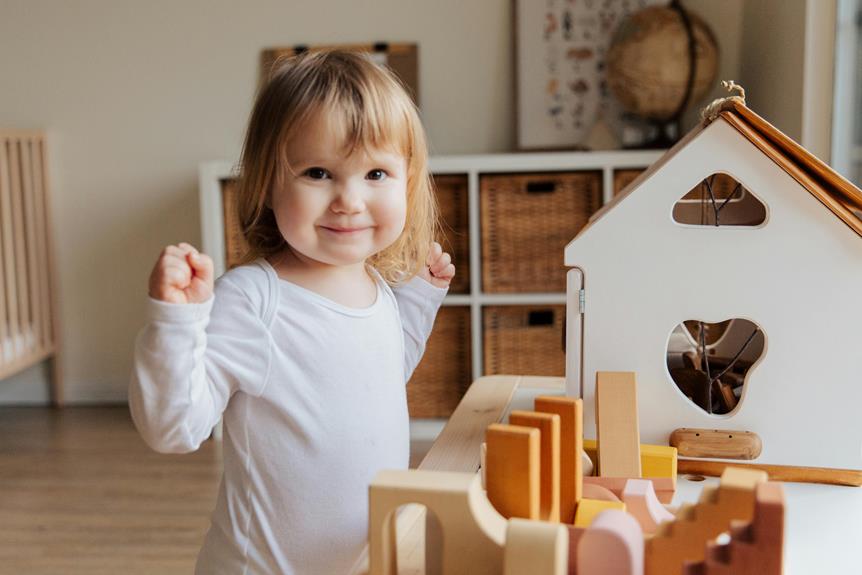
As you observe a baby engaging with interactive toys, you may wonder about the ways these toys contribute to their cognitive development. The interactivity and sensory experiences provided by these toys can have a profound impact on a baby's growth and learning. By exploring the cause-and-effect relationships and practicing problem-solving skills through play, babies can develop crucial cognitive abilities. But how exactly do these interactions shape a baby's cognitive development? Let's explore the intricate connection between interactive toys and cognitive growth in more detail.
Benefits of Interactive Toys for Babies
Interactive toys provide essential stimulation for your baby's cognitive growth and development. Through interactive play, your little one can explore cause and effect relationships, develop problem-solving skills, and enhance their hand-eye coordination. These toys engage your baby's senses, encouraging them to listen, look, touch, and explore, which is crucial for their sensory development. By interacting with these toys, your baby learns to focus their attention, improve their memory, and boost their concentration levels.
Moreover, interactive toys promote social interaction as they often require playing with a caregiver or other children. This interaction helps your baby learn communication skills, turn-taking, and cooperation. Additionally, these toys can introduce your baby to basic concepts such as colors, shapes, numbers, and letters in a fun and engaging way. As your baby grows and continues to interact with these toys, they'll further develop their cognitive abilities and lay a strong foundation for future learning.
Cognitive Skills Enhanced by Interactive Toys
Enhancing your baby's cognitive skills, interactive toys provide valuable opportunities for learning and development. These toys stimulate various cognitive abilities such as problem-solving, memory retention, and spatial awareness. Through interactive play, your baby can enhance their critical thinking skills by figuring out how different parts of a toy work together or solving puzzles.
Interactive toys also help in developing your baby's memory skills. For instance, toys that involve remembering sequences or patterns can boost your baby's memory retention capabilities. Additionally, toys that require your baby to identify shapes, colors, or numbers can enhance their recognition and cognitive association skills.
Furthermore, interactive toys support the development of spatial awareness in babies. Activities like fitting shapes into corresponding holes or building structures with blocks help your baby understand spatial relationships and improve their hand-eye coordination. By engaging with these toys, your baby can strengthen their cognitive skills in an enjoyable and interactive way.
Importance of Interactive Play in Development
Engaging in interactive play with your baby is crucial for their overall development. Through interactive play, your baby not only has fun but also learns essential skills that contribute to their cognitive, social, and emotional growth. Interactive play helps in building strong bonds between you and your baby, fostering trust and security. It also aids in developing your baby's communication skills as they learn to express themselves through sounds, gestures, and eventually words.
Furthermore, interactive play stimulates your baby's curiosity and creativity, encouraging them to explore and discover the world around them. This type of play enhances problem-solving abilities as your baby learns to navigate challenges and find solutions through trial and error. Additionally, interactive play promotes physical development by improving motor skills and coordination.
Choosing the Right Interactive Toys
When selecting interactive toys for your baby, prioritize options that stimulate multiple senses and encourage exploration. Look for toys that make sounds, have different textures, and vibrant colors to engage your little one's auditory, tactile, and visual senses.
Toys that light up or have contrasting patterns can also help develop your baby's visual tracking skills. Choose toys that are safe and age-appropriate, paying attention to small parts that could pose a choking hazard.
Interactive toys that allow your baby to manipulate objects, such as stacking cups or shape sorters, can enhance their fine motor skills and hand-eye coordination. Consider toys that promote cause-and-effect relationships, like push-and-pull toys or objects that respond to touch, as these can help your baby understand how their actions can produce different outcomes.




